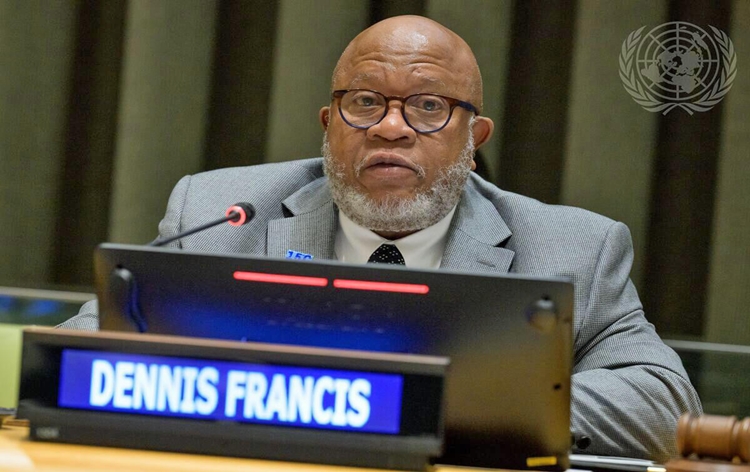President of the 78th Session of the UN General Assembly, Dennis Francis, stressed on Wednesday the imperative need to reform the United Nations Security Council (UNSC), stating that the current structure does not adequately represent today’s geopolitical realities. Francis highlighted the outdated nature of the council, established in the post-1945 era, emphasizing that significant global changes have occurred since then.
“The Security Council of the United Nations as it currently exists harks back to a period in world history which no longer exists. It was formed in the immediate post-1945 era. Since then, the world has changed radically. The geopolitical realities of today are not reflected in the council,” he remarked.
Acknowledging the urgent call for democratization within the council, Francis pointed out that geopolitical dynamics have hindered crucial decision-making, leading to the frequent use of the veto.
“There are those who claim that the council is in urgent need of democratization. The fact of the matter is that the council has in recent years been progressively unable to take the necessary decisions to support international peace, largely for geopolitical reasons. The global dynamics of geopolitics get imported into the council, resulting invariably in the use of the veto by one or the other party,” he added.
Francis emphasized the resulting frustration, not just within the General Assembly but also among the global population, stressing the necessity of reforms for the benefit of the 8 billion people observing.
“Often this causes immense frustration in the General Assembly, but also beyond, in a key area of concern for the UN as a whole. And that is the key constituency of the 8 billion people who are looking on. So reform of the council is absolutely necessary,” said the UNGA President.
While recognizing that some nations may be hesitant to engage in substantive reform due to privilege, Francis underscored the inadequacy of the existing formula.
“I don’t think that there is any member of the UN that would deny the need for reform of the council. Of course, there are those who are less anxious to engage substantively in the process of reform because if you are in a privileged position, you are not necessarily in a hurry to lose privilege,” he stated.
He asserted that reforms are essential for the overall interest of the multilateral system and the United Nations’ ability to fulfill its mandate. “But I think it is well appreciated that the old formula, the existing formula, is woefully inadequate and, in the interest of the system as a whole, of the multilateral system, and of the ability of the United Nations to discharge its mandate, reform is inescapable.”
Regarding the commencement of formal negotiations for reforms, Francis reported ongoing discussions among members, focusing on potential elements of the reforms. However, he noted the absence of consensus on when these negotiations should start, posing a challenge for UN member states to reach an agreement.
“Unhappily, I don’t have exciting news for you… for reforms of the council, the commencement of formal negotiations has not taken place. That is something on which members need to come to consensus, and there is no consensus as of now as to when that process should begin,” added Francis.
(inputs from ANI)














